Hirayama lives a life of blissful contentment, spending his days balancing his job as a caretaker of Tokyo’s public toilets with his passion for music, literature, and photography. His structured routine is slowly interrupted by unexpected encounters that force him to reconnect with his past. A film by Wim Wenders, starring Koji Yakusho.
PERFECT DAYS
Wim Wenders
(2023)
Since 2020, the Tokyo Toilet Project has drawn attention with its designer restrooms in Shibuya created by such world-renowned figures as Ban Shigeru, Kuma Kengo, and Ando Tadao. As COVID restrictions loosened, Wim Wenders received a unique invitation from Koji Yanai (柳井康治). Wenders was to explore the Tokyo Toilet Project in Shibuya, a remarkable initiative that transformed 17 public restrooms with the help of 16 renowned architects and designers. Initially, the plan was for Wenders to create a short film, or perhaps a series, highlighting these innovative facilities. However, Wenders surprised everyone by opting for a feature-length film. Co-screenwriter Takuma Takasaki revealed that introducing the character of Hirayama opened up exciting new narrative possibilities for them. The filming itself was a whirlwind, taking only 17 days to complete in Tokyo.
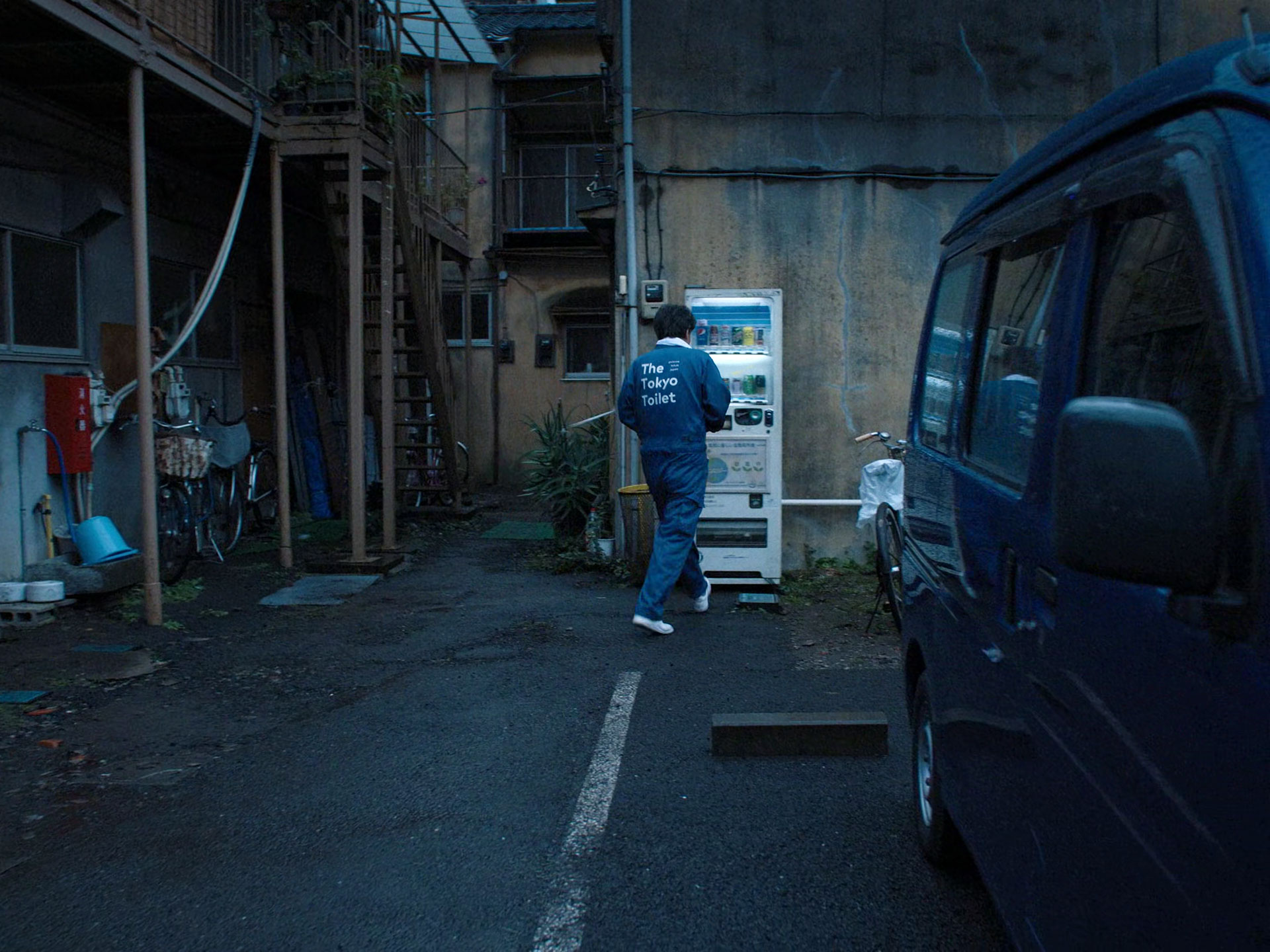
This is the story of a man with a mysterious past, Hirayama / 平山 (Koji Yakusho), who works as a toilet cleaner for The Tokyo Toilet project. His daily routine begins with waking up in the morning, watering the young trees he has collected, and then buying his coffee from a vending machine near his home. Finally, Hirayama drives out in his tiny blue van to clean the beautifully designed public toilets.
THE TOKYO TOILET project is recreating public toilets at 17 locations in Shibuya, Tokyo, as a step toward achieving a society that embraces diversity. THE TOKYO TOILET project has renovated 17 public toilets in Shibuya to make them accessible for everyone regardless of gender, age, or disability. The toilets were designed by 16 globally recognized architects and designers (Tadao Ando, Toyo Ito, Tomohito Ushiro, Masamichi Katayama / Wonderwall, Kengo Kuma, Junko Kobayashi, Takenosuke Sakakura, Kashiwa Sato, Kazoo Sato, Nao Tamura, NIGO®, Marc Newson, Shigeru Ban, Sou Fujimoto, Miles Pennington / UTokyo DLX Design Labm, and Fumihiko Maki), who are using their design and creative skills to address social issues. The 17th toilet was completed and opened to the public in March 2023.
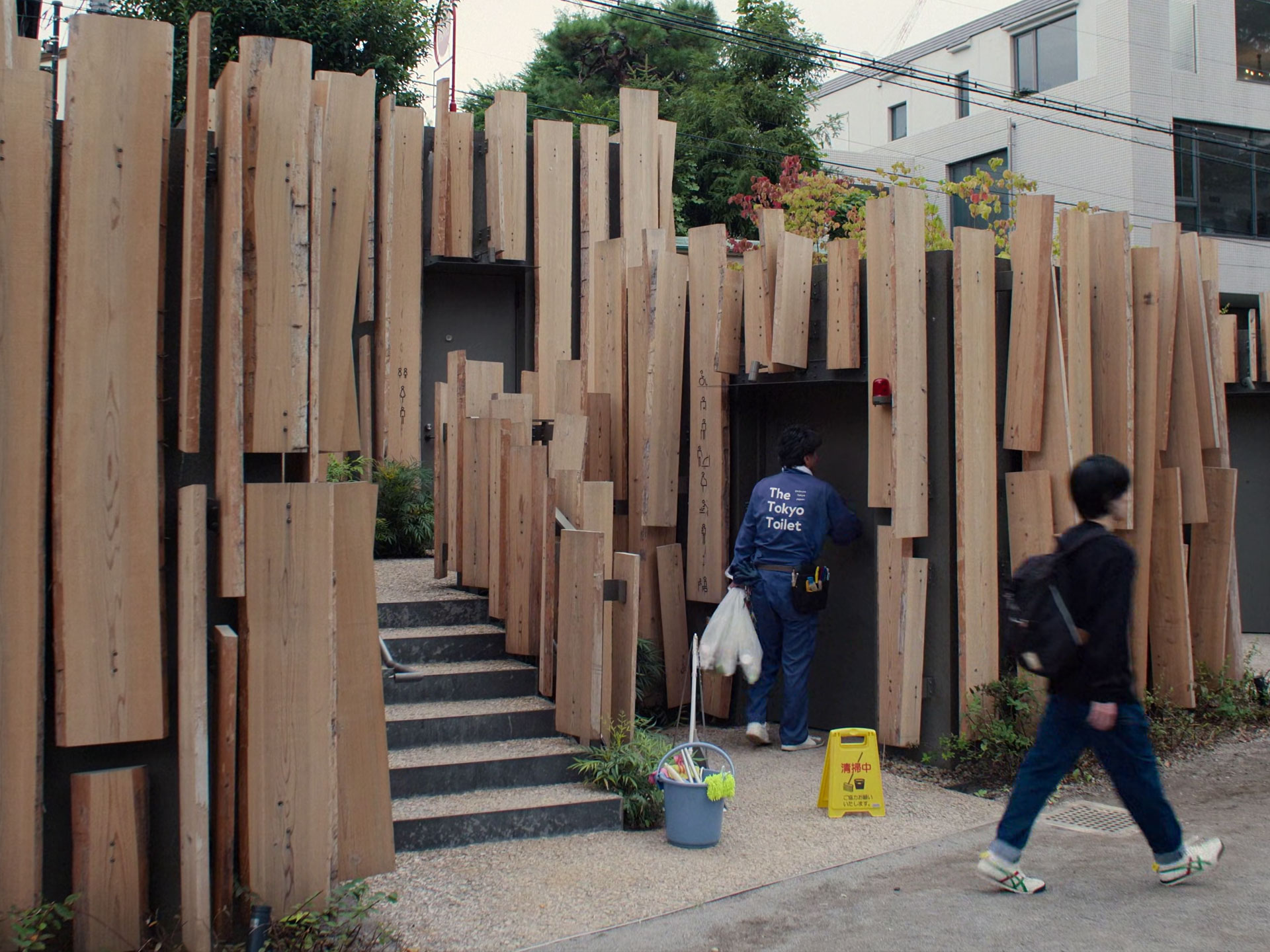
During his commute, Hirayama enjoys listening to classic music from his cassette tape collection, which includes songs like The Animals’ House of the Rising Sun, The Velvet Underground’s Pale Blue Eyes, Otis Redding’s (Sittin’ On) The Dock of the Bay, and Sachiko Kanenobu’s 青い魚. His presence is mostly ignored by the people who use the toilets. One day, a woman searching for her lost son finds him safe with Hirayama. Instead of a simple thank you, she looks at him with suspicion. Hirayama rarely speaks, having almost no dialogue for the entire first hour of the film.
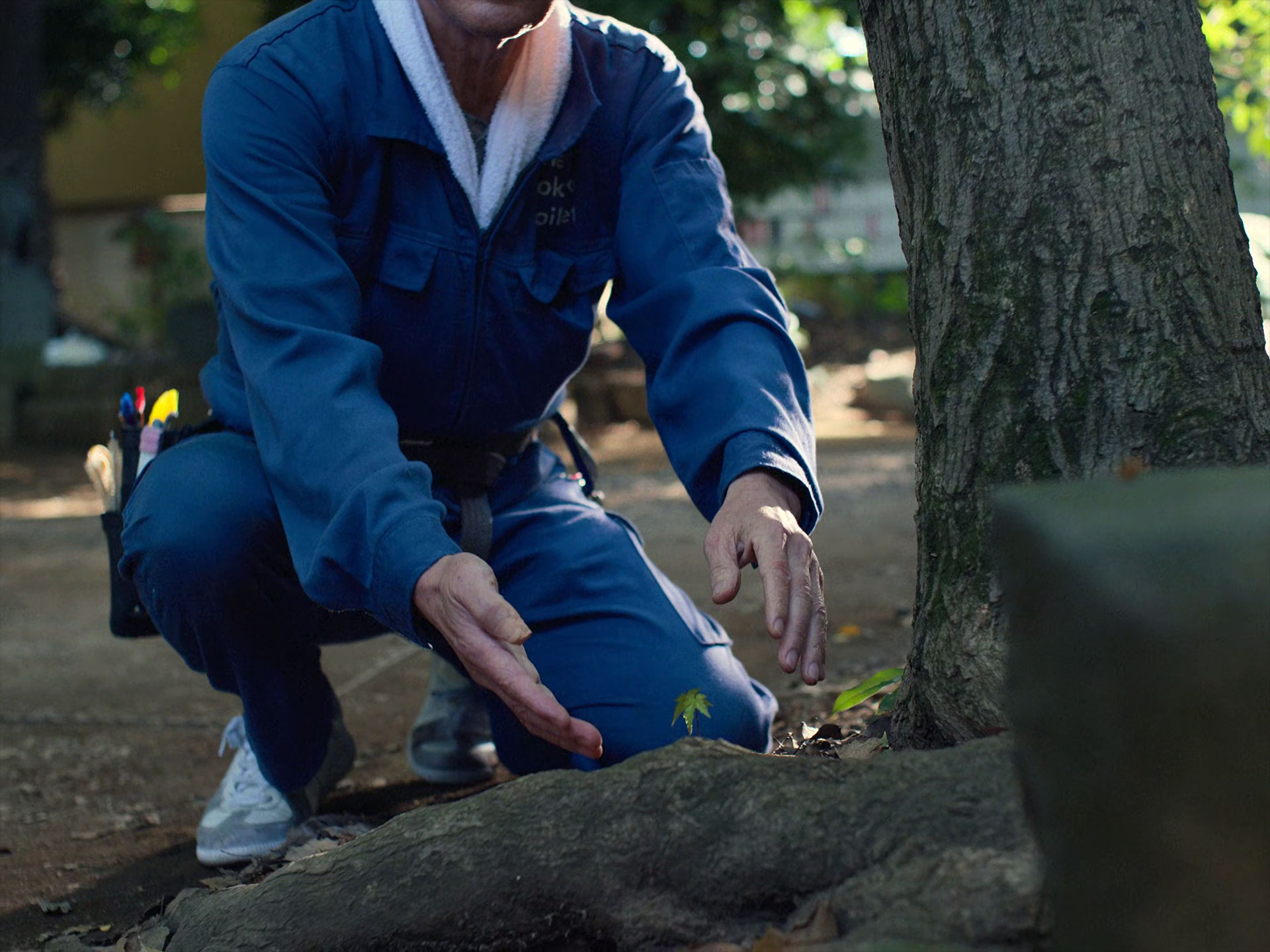
Hirayama takes his work seriously, meticulously cleaning every inch of the toilet, leaving no room for error. During his lunch break, he usually eats alone in the park surrounded by the trees he loves. He occasionally snaps a picture with his point-and-shoot film camera, capturing the beauty of the trees. Whenever a tiny sprout near his favorite tree catches his eye, he’d grab a folded paper bag from his wallet, gently scoop it up, and bring it home.
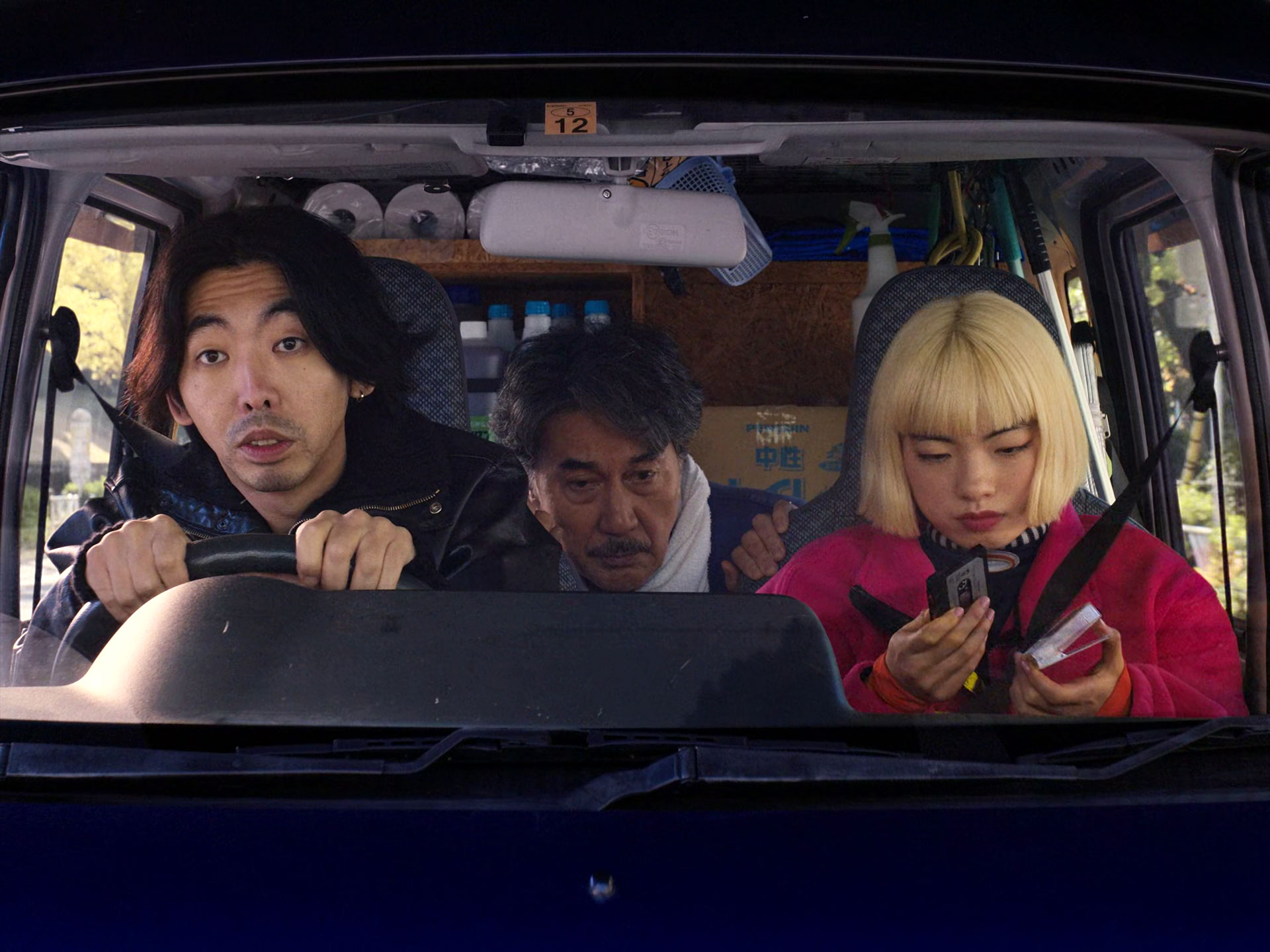
Hirayama’s routine is interrupted when his irresponsible young colleague Takashi / タカシ (Tokio Emoto), asks to borrow his van so he can drive a young woman named Aya / アヤ (Aoi Yamada) on a date. Initially hesitant, Hirayama lets Takashi drive the van while he sits uncomfortably in the back. On the trip, Aya becomes captivated by the song, Patti Smith’s “Redondo Beach.” Disappointed to learn their date was a lie, Takashi follows Aya’s instructions to drop her off at the bar where she works. Aya explains she has to work an extra shift, but promises him the whole night if he comes to the bar. but promises him the whole night if he comes to the bar. Without Aya noticing, Takashi slips Hirayama’s Patti Smith cassette tape into Aya’s purse.
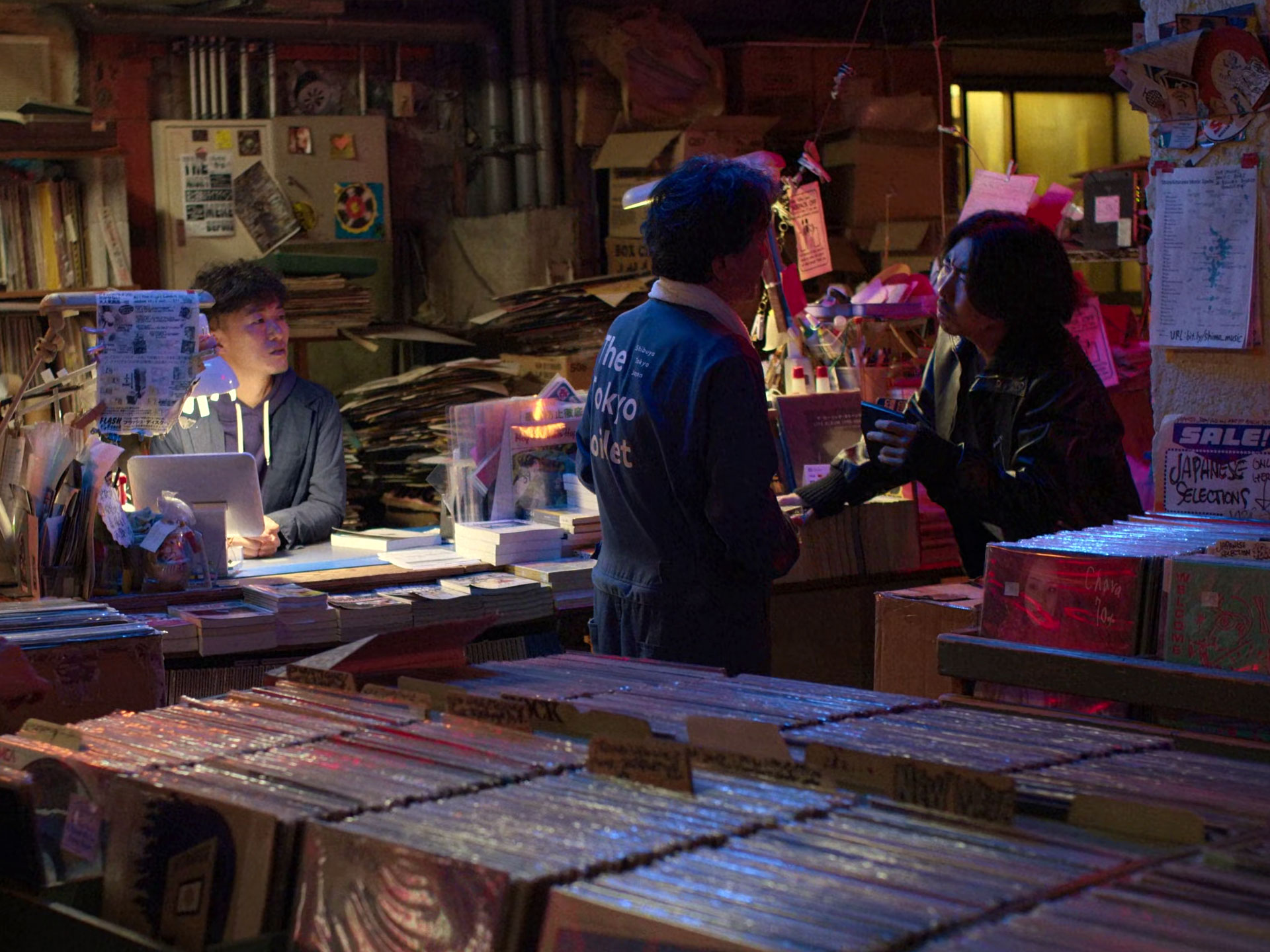
In a desperate attempt to find money for his date with Aya, Takashi convinces Hirayama to visit a record shop to get some of his cassette tapes appraised. To their surprise, Takashi discovers Hirayama’s collection is highly valuable, with some tapes fetching up to 10,000 yen. Takashi urges Hirayama to sell one, but Hirayama refuses. Instead, he gives Takashi money so he can be with Aya at the bar. On the way home, his van runs out of gas. With no money left in his wallet, Hirayama is forced to sell one of his beloved cassette tapes.
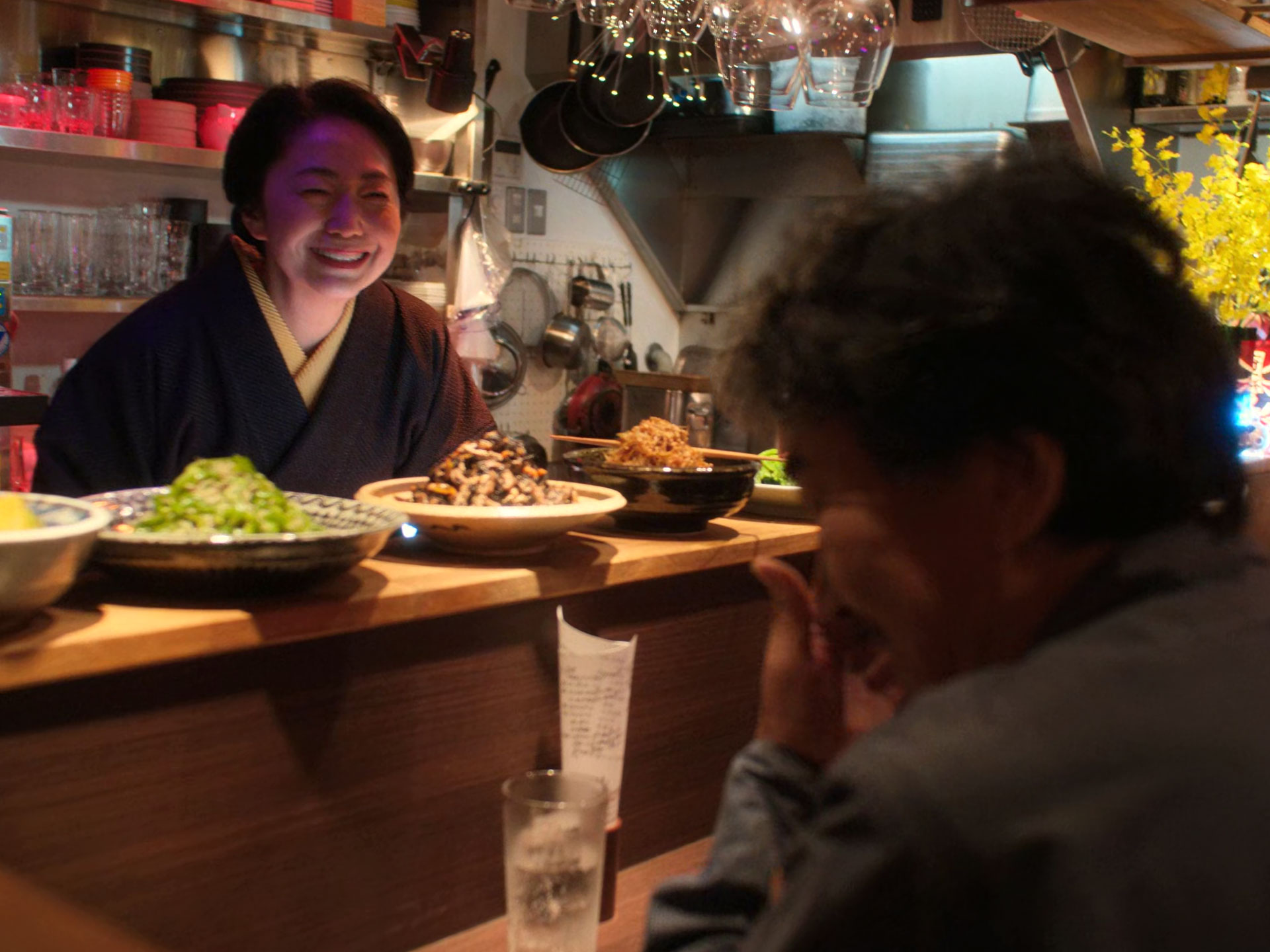
Hirayama resumes his daily routine of cleaning toilets, finding joy in his everyday life. While cleaning a stall, he finds a piece of paper with a handwritten tic-tac-toe game on it. At first, he throws it in the trash, but then has a change of heart. He grabs a pen, starts the game, and returns the paper to its hiding place. An unexpected source of joy emerges: playing tic-tac-toe with a stranger we never see throughout the film. In the evening, Hirayama pops into his regular bar. There, a genuine connection seems to blossom between him and Mama / ママ (Sayuri Ishikawa), the woman who runs the place. Though the film later reveals he’s been a patron for five or six years, this is the only time we see him there.
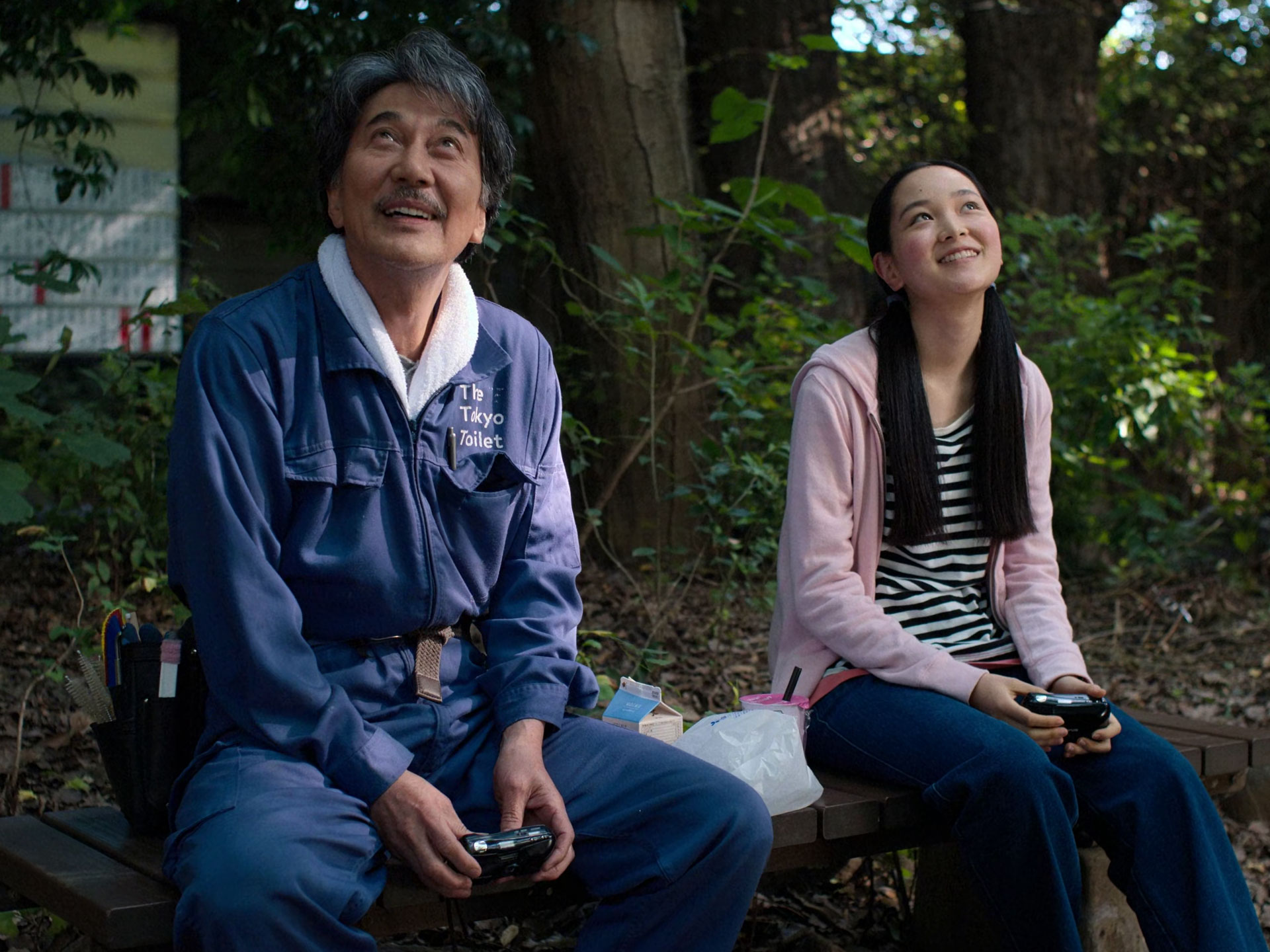
Hirayama’s life is disrupted once more with the unexpected visit of his runaway niece, Niko / ニコ (Arisa Nakano). A plot twist unfolds, revealing Hirayama’s surprising past. He actually comes from a wealthy family, as evidenced by the arrival of his estranged younger sister Keiko / ケイコ (Yumi Aso), in a chauffeured car to pick up her daughter. Hirayama’s decision to isolate himself from his family is still a mystery. While hints of a troubled past might surface, his behavior never suggests delusion. We’re left to wonder what drove him to this solitary life.
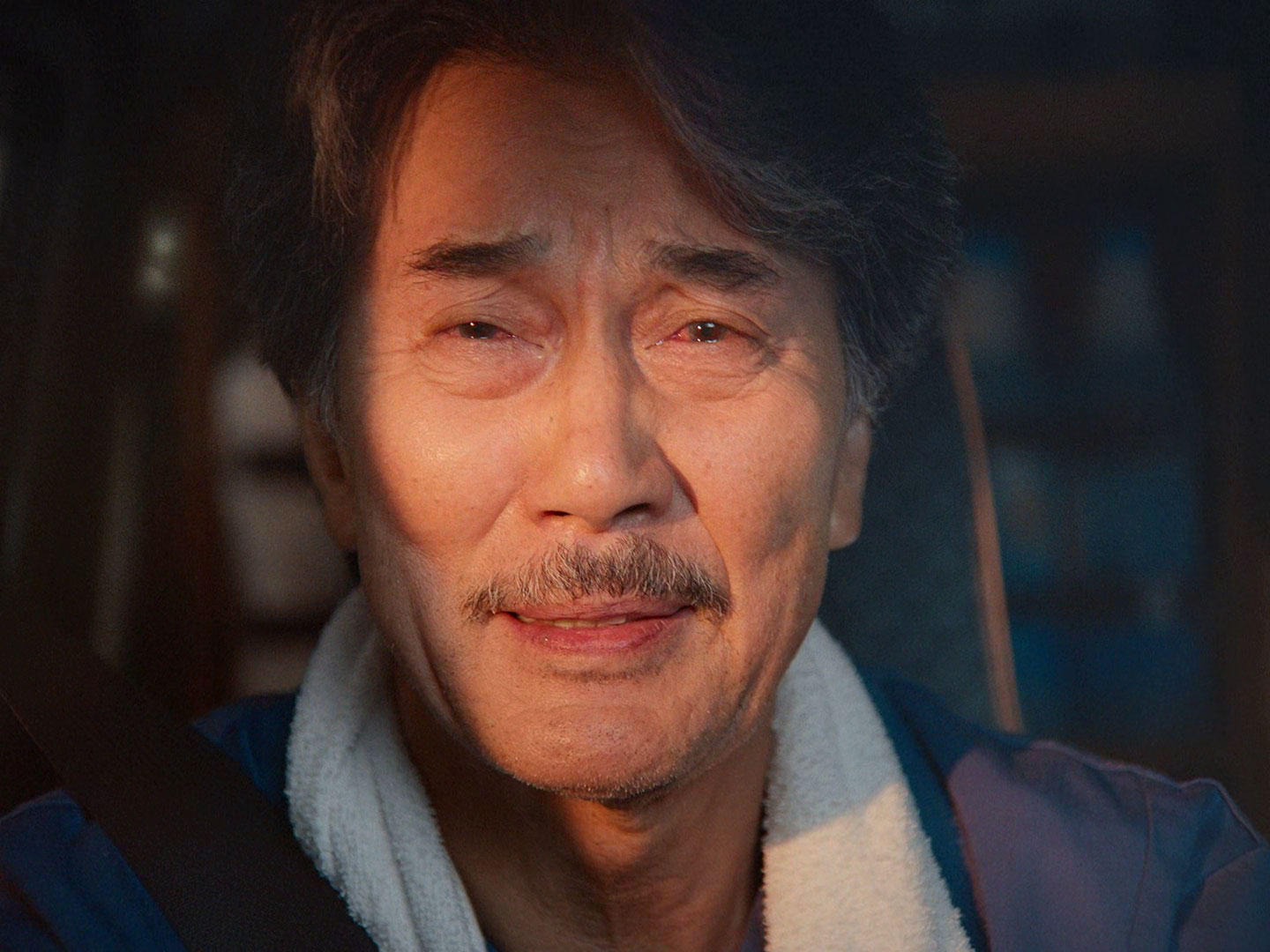
I enjoyed most of the film, especially the songs selection and the plot twist explaining Hirayama’s love for reading. However, the subsequent twist may require a suspension of disbelief. The encounter between the bar owner’s ex-husband and Hirayama feels more suited to a fantastical manga storyline than a realistic film. Furthermore, the ex-husband conveniently finds Hirayama in a seemingly random location, adding to the implausibility of the encounter.
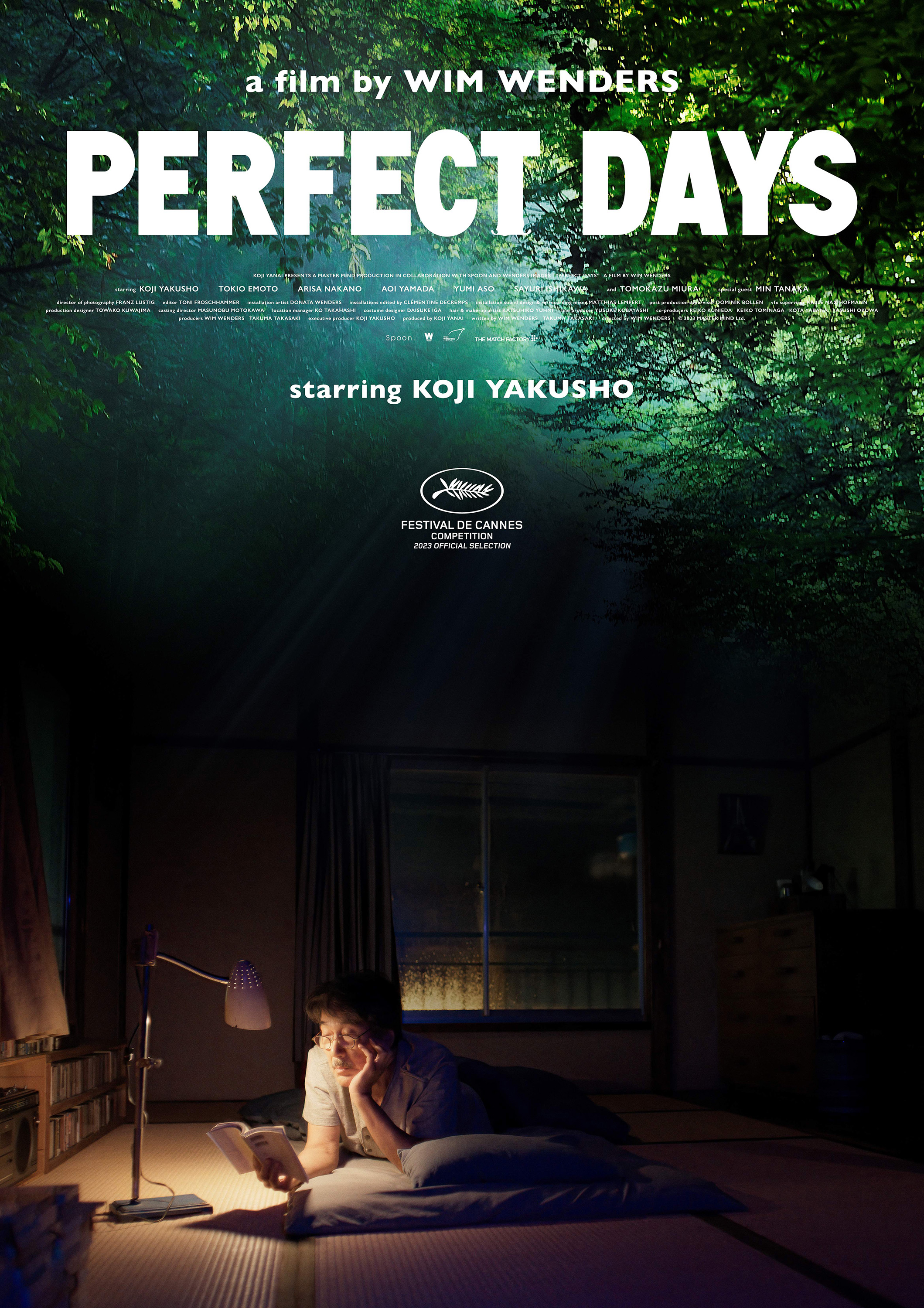
PERFECT DAYS premiered at Festival de Cannes on 25 May 2023 where it was selected to compete for the Palme d’Or. The film won Prix du Jury Œcuménique, and Best Actor Award (Prix d’interprétation masculine) for Koji Yakusho.
Awarded since 1973, the Prix du Jury Œcuménique is a prestigious independent film prize for feature-length movies screened at major international festivals. This jury honors films that combine artistic excellence with a powerful exploration of the human condition. They seek films that delve into the complexities of who we are, capturing our struggles, hopes, and the very essence of what makes us human.
PERFECT DAYS was theatrically released in Germany on 21 December, and in Japan on 22 December.




